american citizens
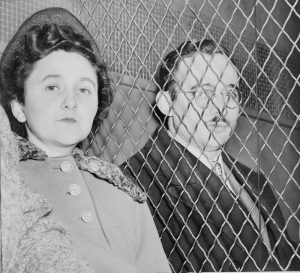
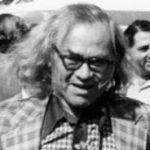 I could never begin to understand how an American citizen could be so evil as to commit espionage against the United States by selling secrets to other countries, but then again, that is not something that is so unusual these days. In the 1940’s, however, it wasn’t so common. Nevertheless, Julius Rosenberg and Ethel Rosenberg were American citizens who were convicted of spying on behalf of the Soviet Union. The Rosenbergs were accused of providing top-secret information about radar, sonar, jet propulsion engines, and valuable nuclear weapon designs to the Soviet Union at a time when the United States was the only country in the world with nuclear weapons. Imagine if we could go back to that time. The Rosenbergs were convicted of espionage in 1951, and they were executed by the federal government of the United States in 1953 in the Sing Sing correctional facility in Ossining, New York. They were the first American civilians to be executed for such charges and the first to suffer that penalty during peacetime.
I could never begin to understand how an American citizen could be so evil as to commit espionage against the United States by selling secrets to other countries, but then again, that is not something that is so unusual these days. In the 1940’s, however, it wasn’t so common. Nevertheless, Julius Rosenberg and Ethel Rosenberg were American citizens who were convicted of spying on behalf of the Soviet Union. The Rosenbergs were accused of providing top-secret information about radar, sonar, jet propulsion engines, and valuable nuclear weapon designs to the Soviet Union at a time when the United States was the only country in the world with nuclear weapons. Imagine if we could go back to that time. The Rosenbergs were convicted of espionage in 1951, and they were executed by the federal government of the United States in 1953 in the Sing Sing correctional facility in Ossining, New York. They were the first American civilians to be executed for such charges and the first to suffer that penalty during peacetime.
On March 6, 1951, the trial of Ethel and Julius Rosenberg began in New York Southern District federal court. Presiding over the espionage trial was Judge Irving R Kaufman. The couple was charged with espionage, rather than treason, because the latter could not be charged since the United States was not at war with the Soviet Union at the time of the crime’s commission. The father and son team of Emanuel and Alexander Bloch defended the Rosenbergs and their co-defendant, Morton Sobell. Roy Cohn, best known for his association with Senator Joseph McCarthy prosecuted the trio.
The Rosenbergs and Sobell, along with other co-conspirators were directly responsible for the beginning of the Cold War. Julius Rosenberg’s brother-in-law, David Greenglass was a machinist at Los Alamos, where America developed the atomic bomb. Rosenberg was a member of the American Communist Party and was fired from his government job during the Red Scare. According to Greenglass, Rosenberg asked him to pass highly confidential instructions on making atomic weapons to the Soviet Union. In compliance, Greenglass gave the information to Harry Gold, who gave it to the Russians. The Soviets exploded their first atomic bomb in September 1949, effectively starting the Cold War, based on information, including that from Greenglass, they had obtained from spies.
The confession of Greenglass was the only direct evidence of the Rosenberg’s involvement. The left-wing 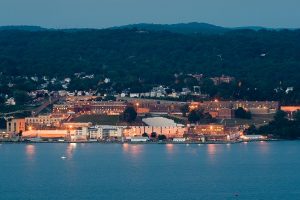 community believed that the Rosenbergs were prosecuted because of their membership in the Communist Party. The Rosenbergs became the cause of leftists throughout the nation. The rest of their family, including their two sons declared the innocence of the Rosenbergs for years. The trial lasted nearly a month…ending on April 4, 1951. Sobell received a thirty year sentence. Greenglass got fifteen years for his cooperation. Reportedly, the Rosenbergs were offered a deal in which their death sentences would be commuted in return for an admission of their guilt. They refused and were executed. In 2008, the only surviving defendant, Morton Sobell, admitted that he was a Soviet spy and implicated Julius Rosenberg in industrial and military espionage.
community believed that the Rosenbergs were prosecuted because of their membership in the Communist Party. The Rosenbergs became the cause of leftists throughout the nation. The rest of their family, including their two sons declared the innocence of the Rosenbergs for years. The trial lasted nearly a month…ending on April 4, 1951. Sobell received a thirty year sentence. Greenglass got fifteen years for his cooperation. Reportedly, the Rosenbergs were offered a deal in which their death sentences would be commuted in return for an admission of their guilt. They refused and were executed. In 2008, the only surviving defendant, Morton Sobell, admitted that he was a Soviet spy and implicated Julius Rosenberg in industrial and military espionage.
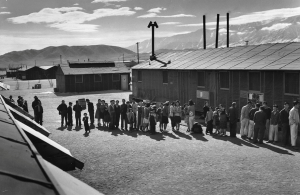 A while back, my sister, Cheryl Masterson suggested a book to me because she knew that I liked World War II history. The book, Midnight In Broad Daylight, by Pamela Rotner Sakamoto, was about, among other things, the plight of the Japanese American citizens that followed the attack on Pearl Harbor. The book covered a couple of specific families, but as I listened to it through Audible, I began to consider just how the Japanese American citizens, many of whom were born in the United States to legal immigrants from Japan long before the war and the attack on Pearl Harbor ever happened.
A while back, my sister, Cheryl Masterson suggested a book to me because she knew that I liked World War II history. The book, Midnight In Broad Daylight, by Pamela Rotner Sakamoto, was about, among other things, the plight of the Japanese American citizens that followed the attack on Pearl Harbor. The book covered a couple of specific families, but as I listened to it through Audible, I began to consider just how the Japanese American citizens, many of whom were born in the United States to legal immigrants from Japan long before the war and the attack on Pearl Harbor ever happened.
For all intents and purposes, it seemed that these people were loyal to their new country. Many wanted to serve in the US military to fight against the Axis of Evil countries, including Japan. I could see that, but I could also see the other side of the coin. The rest of the American people were scared. They didn’t know if they could trust these Japanese American citizens. They wondered if they were spies, sent to infiltrate our defenses. Before anyone could really give the situation a second thought, if was decided that the Japanese American citizens and the legal immigrants awaiting naturalization, had to be placed in Japanese internment camps which were established by President Franklin Roosevelt through his Executive Order 9066. At the time, no one could really look rationally at both sides of the situation. It was an awful time for many people.
I thought about the people who really were loyal to the United States. They wanted to help, but no one trusted them. Many of them still had family in Japan, so their loyalties might have been divided, even if they didn’t agree with the attack on Pearl Harbor. I suppose some might have actually been loyal the Japan, I don’t know if we will ever really know for sure. It didn’t matter anyway, because their lives were put on hold…indefinitely. Some people got out of the camps because they had language skills the US military needed. These people were give a chance to get out of the camps, in exchange for serving in the military and making valuable translations. There weren’t a lot of them, but those who did this important work proved themselves to be loyal. Some had been trained in Japanese schools, prior to coming to America. Some had family in Japan, and even family in the Japanese military. I couldn’t imagine how torn they must have been, but they did their jobs. I don’t know if they knew about what was coming for Hiroshima or Nagasaki, but the people in the true story of the book, had 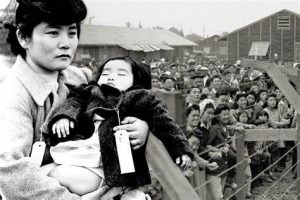 family in Hiroshima on the day of the atomic bombings, as well as family in the Japanese military. They had no way to tell them to get out of town, although civilians were warned to get out. People didn’t trust what they were told, or just didn’t understand what was going on. Somehow, the family in the book survived, but so many didn’t. I can’t feel sorry for any of the Japanese people who agreed with what the Japanese government was doing, but there were people there, as there always are, who didn’t have a choice. They were caught on the wrong side and they couldn’t leave. Those Japanese Americans were caught too. They were on the right side, but they were caught on the wrong side of the right side…if that makes any sense at all.
family in Hiroshima on the day of the atomic bombings, as well as family in the Japanese military. They had no way to tell them to get out of town, although civilians were warned to get out. People didn’t trust what they were told, or just didn’t understand what was going on. Somehow, the family in the book survived, but so many didn’t. I can’t feel sorry for any of the Japanese people who agreed with what the Japanese government was doing, but there were people there, as there always are, who didn’t have a choice. They were caught on the wrong side and they couldn’t leave. Those Japanese Americans were caught too. They were on the right side, but they were caught on the wrong side of the right side…if that makes any sense at all.

